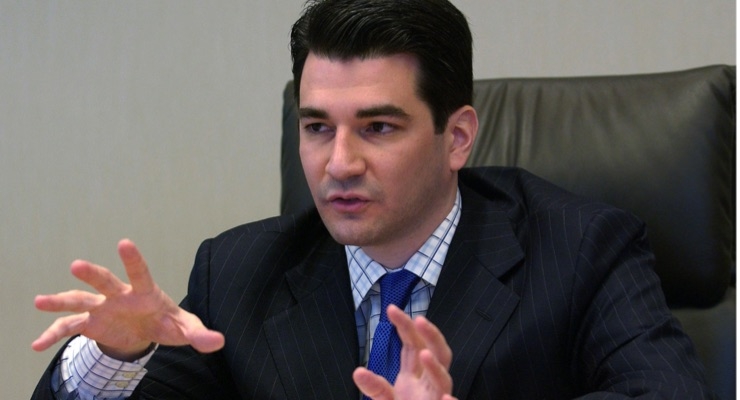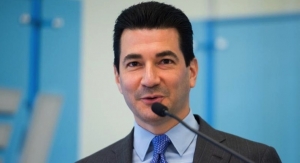03.13.17
Donald Trump has nominated Scott Gottlieb, MD, to lead the U.S. Food and Drug Administration. Dr. Gottlieb served as FDA deputy commissioner for medical and scientific affairs from 2005-2007, during the George W. Bush administration.
He is currently a practicing physician and fellow at the American Enterprise Institute (AEI), a non-profit dedicated to research and education on issues of government, economics and social welfare.
According to Politico he is a prolific writer on healthcare issues, particularly the pharmaceutical industry. He is seen as a strong supporter of that industry and has championed deregulation.
While Trump has promised at various times to make fairly radical changes at the FDA, Dr. Gottlieb is a seen as a more conventional choice for commissioner by a Republican president.
Before his tenure as FDA deputy commissioner, Dr. Gottlieb served as a senior advisor to FDA Commissioner Mark McClellan from 2003-2004, and as the FDA’s director of medical policy development. He left FDA in the spring of 2004 to work on implementation of the new Medicare Drug Benefit as a senior adviser to the Administrator of Medicare and Medicaid Services, where he supported the agency's policy work on quality improvement and coverage and payment decision-making, particularly related to new medical technologies.
Dr. Gottlieb is the author of more than 300 articles that have appeared in leading medical journals as well as The Wall Street Journal, The York Times, USA Today and Forbes Magazine. He has held editorial positions on the British Medical Journal and the Journal of the American Medical Association and appears regularly as a guest commentator on CNBC.
Steve Mister, president and CEO of the Council for Responsible Nutrition (CRN), Washington, D.C., noted that Dr. Gottlieb was at the FDA when the industry adopted Adverse Event Reporting (AER) requirements. The fact that he has a track record and a history with FDA means he knows what it takes to run the agency. “Industry likes predictability,” Mr. Mister said.
It remains to be seen how he might balance the need for governmental oversight/regulatory enforcement and industry’s own efforts to self-regulate.
He is currently a practicing physician and fellow at the American Enterprise Institute (AEI), a non-profit dedicated to research and education on issues of government, economics and social welfare.
According to Politico he is a prolific writer on healthcare issues, particularly the pharmaceutical industry. He is seen as a strong supporter of that industry and has championed deregulation.
While Trump has promised at various times to make fairly radical changes at the FDA, Dr. Gottlieb is a seen as a more conventional choice for commissioner by a Republican president.
Before his tenure as FDA deputy commissioner, Dr. Gottlieb served as a senior advisor to FDA Commissioner Mark McClellan from 2003-2004, and as the FDA’s director of medical policy development. He left FDA in the spring of 2004 to work on implementation of the new Medicare Drug Benefit as a senior adviser to the Administrator of Medicare and Medicaid Services, where he supported the agency's policy work on quality improvement and coverage and payment decision-making, particularly related to new medical technologies.
Dr. Gottlieb is the author of more than 300 articles that have appeared in leading medical journals as well as The Wall Street Journal, The York Times, USA Today and Forbes Magazine. He has held editorial positions on the British Medical Journal and the Journal of the American Medical Association and appears regularly as a guest commentator on CNBC.
Steve Mister, president and CEO of the Council for Responsible Nutrition (CRN), Washington, D.C., noted that Dr. Gottlieb was at the FDA when the industry adopted Adverse Event Reporting (AER) requirements. The fact that he has a track record and a history with FDA means he knows what it takes to run the agency. “Industry likes predictability,” Mr. Mister said.
It remains to be seen how he might balance the need for governmental oversight/regulatory enforcement and industry’s own efforts to self-regulate.






















